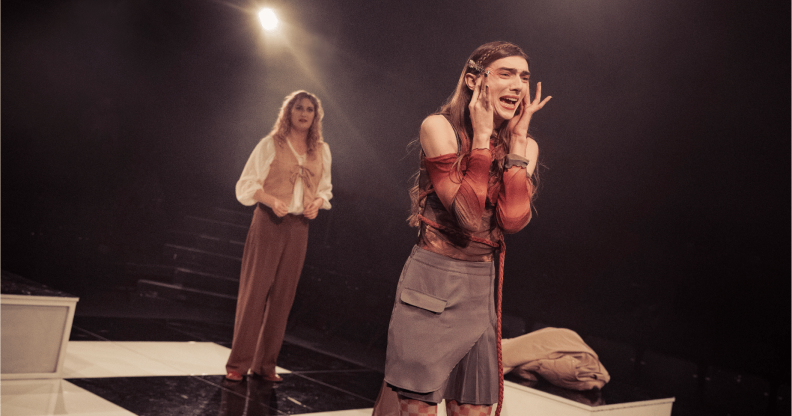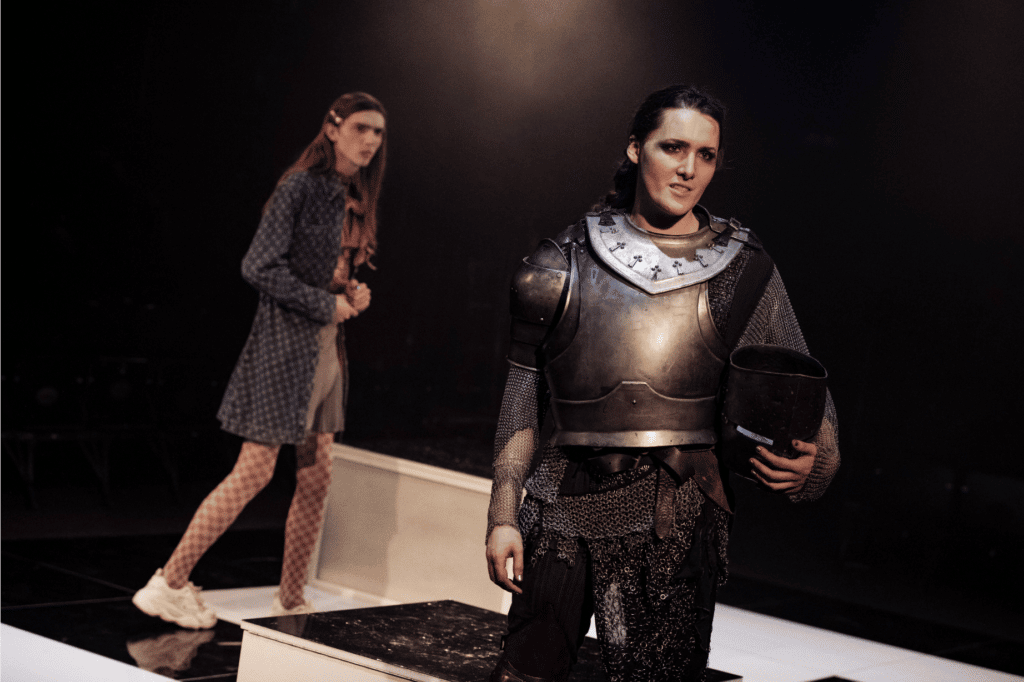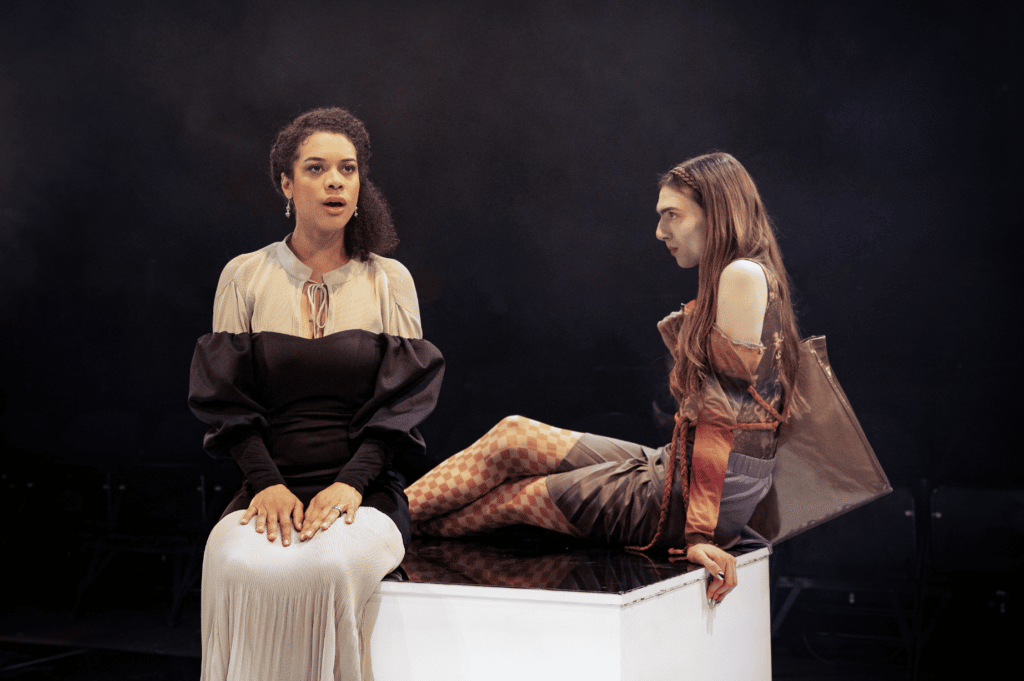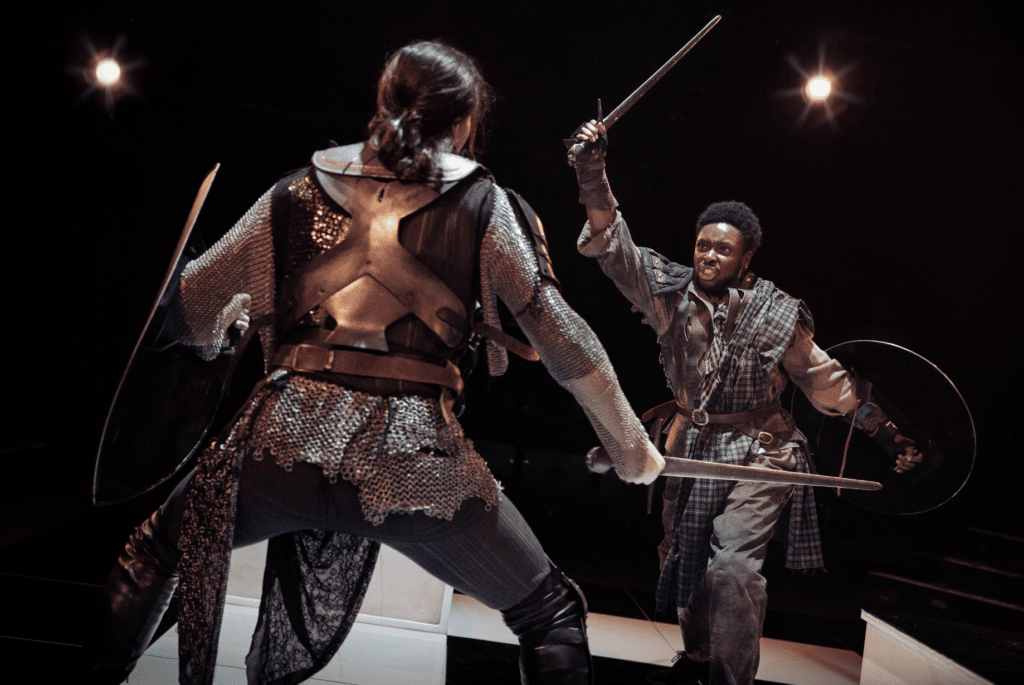The Prince review: Abigail Thorn’s debut play reinvents Shakespeare with a queer, trans twist

Joni Ayton-Kent (L) and Mary Malone (R) in The Prince. (Mark Senior)
A majority-trans cast deliver a masterclass in genre-bending, fourth-wall breaking Shakespearean drama and what it means to live on the margins.
When creator and lead actor Abigail Thorn described her debut theatre show, The Prince, as “The Matrix if it was written in 1600″, she set out an ambitious vision.
The play begins with a very traditional adaptation of Henry IV Part 1. Enter Jen (Mary Malone), who wakes you up from your Shakespeare-induced stupor with an iconic first line: “I didn’t understand a bloody word of that.”
After Jen meets Sam (Joni Ayton-Kent), she learns that the two of them are trapped in the world of Shakespearean literature. The rest of the show plays out like the best kind of school English lesson – one where creativity knew no bounds and at least half the class had no idea what was going on at any given time.

Mary Malone (L) and Abigail Thorn (R) in The Prince. (Mark Senior)
As Jen and Sam try to figure out a way back to their normal lives, Jen begins interacting with the various Shakespearean characters on stage, including King Henry IV (Che Walker), and Henry ‘Hotspur’ Percy (Thorn).
The main character, Hotspur is a gallant knight who is beloved by their father, Northumberland (also Walker), and trying to live up to his expectations of being a worthy son. But Hotspur is trans, and struggling to reconcile external pressure with her internal truth.
Thorn draws on her own experiences of coming out as a trans woman and hiding her transition from the public (in January 2021, she uploaded a viral YouTube coming-out video on her channel, Philosophy Tube, which now has over 1.2 million subscribers).
She effortlessly conveys Hotspur’s anguish, fear, and confusion – and creates a character the entire audience is rooting for. But Hotspur is not the only character reckoning with who they are.
In Prince Hal (Corey Montague Sholay), we see the damage toxic masculinity has on closeted gay men, and the power found in standing up for who you are. In Northumberland and King Henry IV, we explore the internal conflict of a parent wanting the best for their queer child.

Tianna Arnold (L) and Mary Malone (R) in The Prince. (Mark Senior)
And in Lady Kate (Tianna Arnold), who is married to Hotspur, we learn how important it is for women to reclaim their agency and support a partner who is going through a life-altering change. As all our characters begin to blur the lines between fiction and reality, the fourth wall comes crumbling down.
Thorn told PinkNews that director Donnacadh O’Brian found that in parts of the script, they couldn’t “tell what’s Shakespeare and what’s you”.
And watching the play, it is clear what he meant. Thorn’s mastery over rhythm, pacing, mediaeval literature and comedic wordplay shine on the stage.

Abigail Thorn (L) and Tyler Luke Cunningham (R) in The Prince. (Mark Senior)
From Middle Ages dirty talk to Jen’s hilarious one-liners as a normal lass from the 21st century – the tone of the dialogue shifts and changes just enough to keep the audience hooked. The script is enhanced by the stellar physical aspect of the show; from slow-motion sword fighting to more tender moments of love and affection.
As Thorn pointed out, this play is not just about gender and sexuality. It is about the power of love, overcoming the fear of change and the importance of community. Perhaps the most admirable aspect of the play is how easily Thorn proves that you can make jokes about – and for – the LGBTQ+ community without throwing them under the bus.

